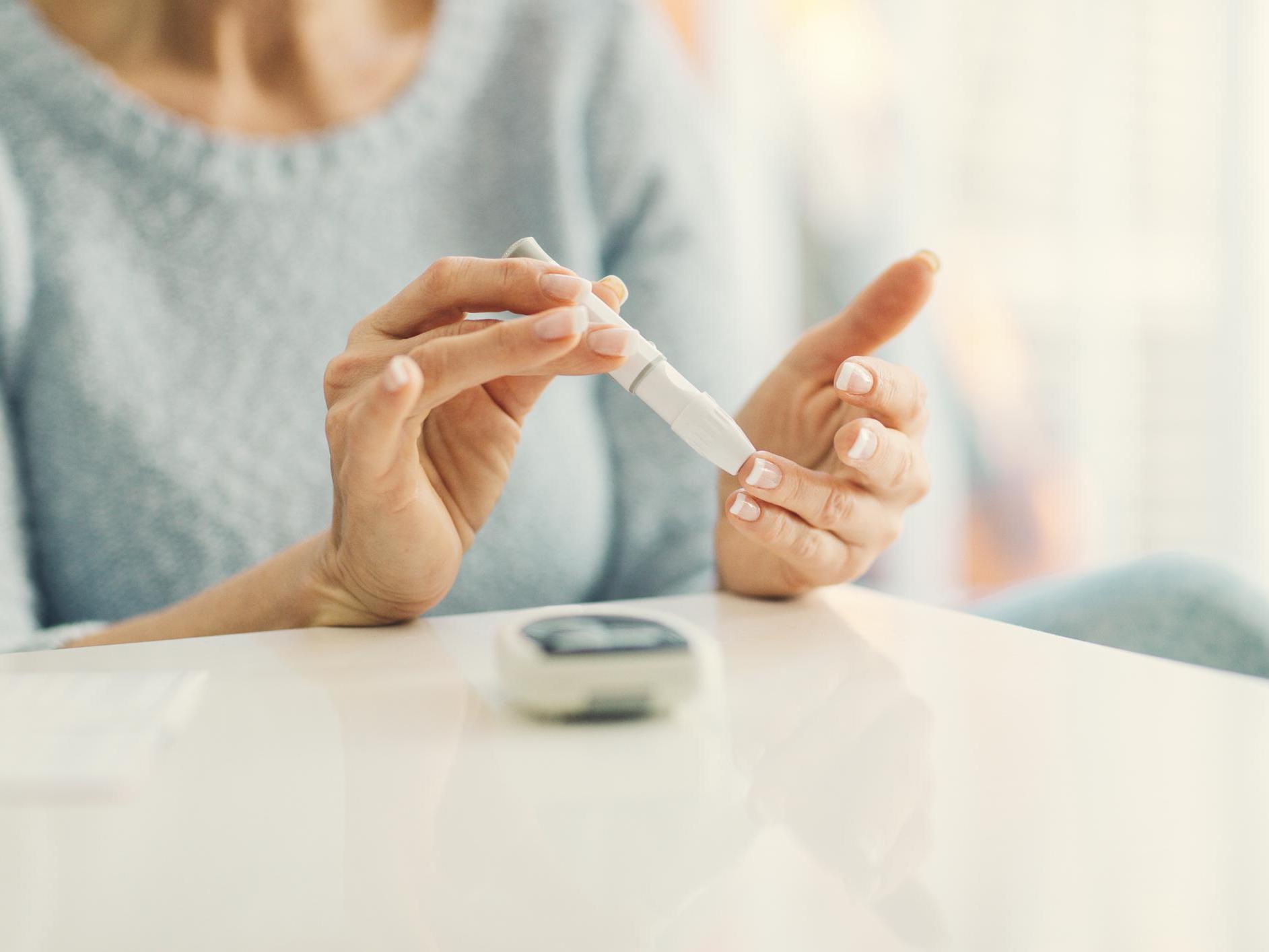What causes diabetes, what are the different types and how can it be treated?
New technology approved to helps patients manage blood sugar levels without need for constant monitoring

The number of cases of diabetes in the UK has topped five million for the first time amid rising levels of obesity.
Diabetes UK said that the nation is in a “rapidly escalating diabetes crisis” as the figure reached an all-time high.
It said that almost 4.3 million people have been diagnosed with diabetes and an estimated 850,000 are living with the condition but have not yet been formally diagnosed.
The charity has also estimated that more than 2.4 million people are at high risk of developing type 2 diabetes in the UK, while someone is diagnosed with type 2 diabetes every two minutes.
Around nine in 10 cases of diabetes are type 2 diabetes, which is often linked to being overweight or inactive. The condition causes the level of sugar in the blood to become too high.
At the moment the standard care for people with type 1 diabetes involves regularly measuring blood sugar levels either through a finger-prick blood test or by using a continuous glucose monitor.
So what are the symptoms of diabetes, what's the difference between type 1 and type 2 diabetes, how is it caused and how can it be treated?
Here’s everything you need to know.
What is diabetes and how is it caused?
Insulin is a hormone produced by the pancreas that regulates your blood sugar levels.
It does this by breaking down the glucose that is in your blood so that it can be used for energy, explains the National Institute of Diabetes and Digestive and Kidney Diseases.
When a person has diabetes, this means that their pancreas is unable to produce enough or any insulin to break down the glucose in their blood.
This can lead to a drastic increase in their blood sugar levels.
The amount of blood glucose that you have in your body typically depends on the foods that you eat, so if you eat sugary foods, your blood sugar levels will rise.
People who consume inordinate quantities of sugar are more likely to develop less severe forms of diabetes.
However, whether or not a person is diagnosed as diabetic may also depend on their genetic makeup, explains Diabetes.co.uk.
What are the different types of diabetes?
There are two main types of diabetes: type 1 and type 2.
If someone is suffering from type 1 diabetes, then this means that their body is not producing any insulin at all and therefore has very serious implications for their health.
People who have type 1 diabetes have an increased risk of developing other health conditions such as heart disease, stroke, kidney disease, blindness and circulation problems.
Scientists have been unable to pinpoint the exact cause of type 1 diabetes, the Mayo Clinic explains, with genetics being the most likely factor.
While type 1 diabetes is commonly found in children, it can be diagnosed at any age.
When someone has type 2 diabetes, this means that their body is either unable to produce enough insulin, or the insulin that the pancreas is able to produce is not working sufficiently, explains Diabetes UK.
While genetics may also play a role in a person developing type 2 diabetes, it can also be caused by other factors such as whether or not they follow a healthy and active lifestyle.
Approximately 13.6 million people in the UK reportedly have an increased risk of developing type 2 diabetes in future, due to factors such as obesity.
Symptoms of type 1 or type 2 diabetes can include fatigue, unexplained weight loss, excessive thirst and frequent urination.
How can diabetes be treated?
People who have been diagnosed with type 2 diabetes may need to take medication in order to reduce the amount of glucose in their blood.
They should also aim to include more healthy foods such as fresh fruits, vegetables, fish, nuts and high-fibre cereals in their diets and reduce the amount of sugar that they consume.
Those who have been diagnosed with type 1 diabetes, the more severe form of the disease, must treat the condition with insulin injections or pumps every day.
They may also need to check their blood sugar levels every day by using a finger-prick blood test.
The type and quantity of insulin that you need is a matter that you can discuss with a medical professional.
The NHS also recommends maintaining an active lifestyle and carrying out regular blood tests to keep an eye on blood sugar levels if you have diabetes.
Can diabetes be reversed?
In September 2018, the former deputy leader of the Labour Party, Tom Watson, revealed that he had been diagnosed with type 2 diabetes but had "reversed" the condition by making changes to his diet and exercising more.
After being diagnosed with the condition in summer 2017, Mr Watson said he eliminated junk food, refined sugar and processed food from his diet and took up cycling, boxing and weightlifting.
The politician told his audience at the annual conference of health industry association ukactive that his diabetes was in "remission" following the changes he had made to his lifestyle.
Diabetes.co.uk explains that people with type 2 diabetes can effectively "reverse" their condition by following similar steps.
If you have type 2 diabetes and you think that you may be able to reverse your condition by following a healthier diet and doing more exercise, then it may be wise to speak to a nutritionist or a medical professional for further advice.
Furthermore, if you are on type 2 diabetes medication that you think you no longer need, make sure that you speak to a doctor before making any changes to your routine.
For more information on diabetes, visit the Diabetes UK website here.
Join our commenting forum
Join thought-provoking conversations, follow other Independent readers and see their replies
Comments


Bookmark popover
Removed from bookmarks